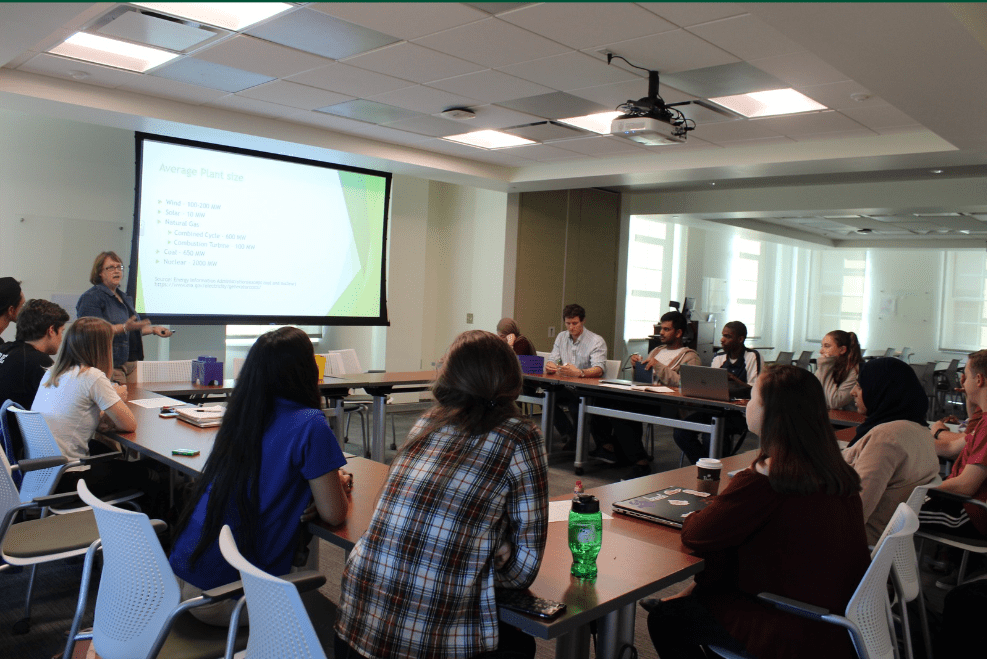Faculty / Instructor Resources

Faculty / Instructor Resources
Why teach an honors course?
Honors courses not only combine the best of both graduate and undergraduate education, they also push faculty members to become more effective mentors and students to become more independent thinkers. Core elements of honors courses should include the following:
- Writing to learn
- Student-driven inquiry/discovery
- Collaboration with research faculty
- Effective student oral and written presentation of results
- Leadership and teamwork
- Innovative themes
- Developmental/mentoring approach to students
“Working with Honors students is, without pause, one of the absolute highlights of my teaching career. My seminars at both the 1000- and 3000- levels have braided important critical thinking skills and creative thinking practices with vibrant conversations whose value has always been a sense of open deliberation and responsible expression. These are brave spaces that allow for fertile academic ground and personal development for students. As I’m fond of saying, working with the Honors program is not only fulfilling as someone with a professional calling to each, but it’s also inspirational as a human with a deep passion for authentic conversations. ‘Soul sustaining’ is how I’ve often described my connection with the Honors program.” Jason Black (2025)
“I highly recommend the Honors College teaching experience. With Honors students, they are more than happy to engage with you and are so easy to build a relationship with during your course. They also are very happy to really think outside of their major when it comes to interdisciplinary creative projects.” Randi Beem (2025)
“Working with Honors students is a privilege because not only are they diligent and exceptionally bright, they also challenge me. That’s an important part of what makes teaching so rewarding.” Malcolm Campbell (2025)
“My students were highly motivated to conduct secondary and primary research, and write and compose digital artifacts to educate their targeted audiences about critical issues in the world. Students interviewed and surveyed community members to answer research questions of their own. They created websites, a video, podcast, press release, and research papers. Teaching WRDS 2101: Advanced Writing: Research and Critical Analysis felt much more than just a job. The class was so much fun because my students were open-minded, eager to learn and challenge themselves far beyond receiving good grades. I’ll always be happy to teach honors students again.” Kefaya Diab (Honors Writing Instructor). (2025)